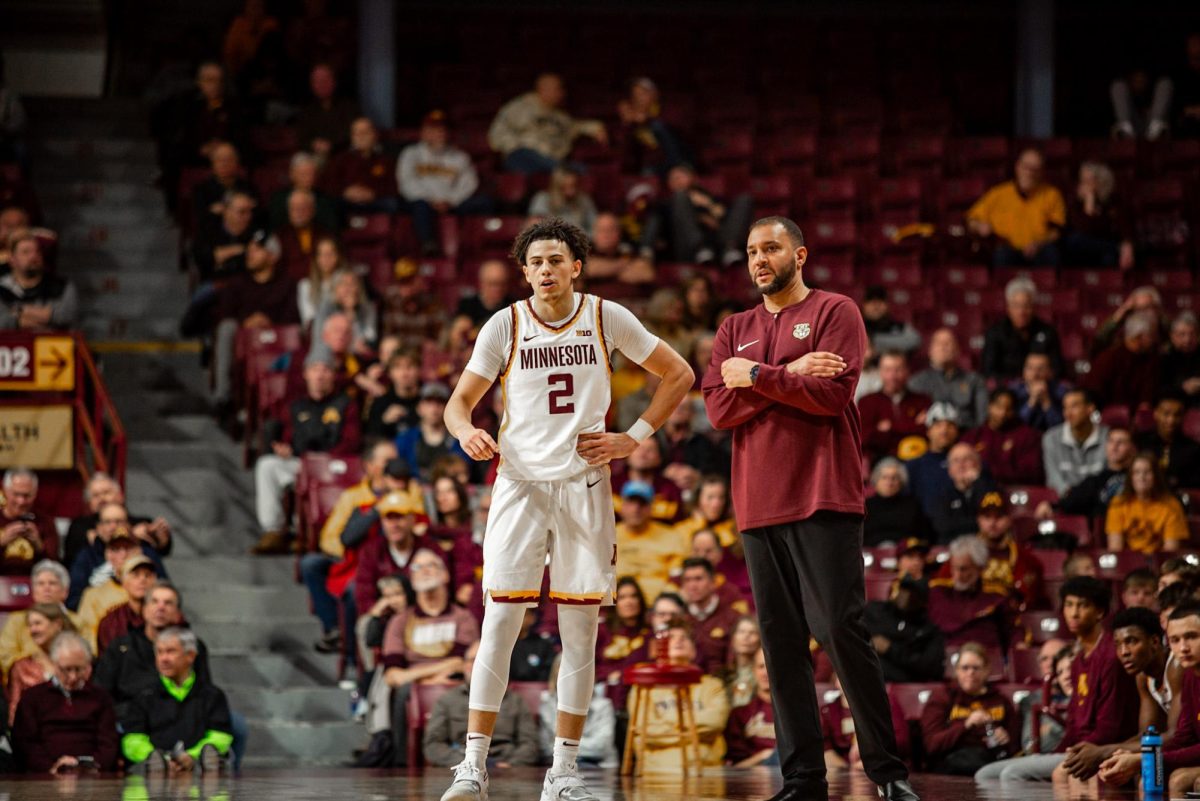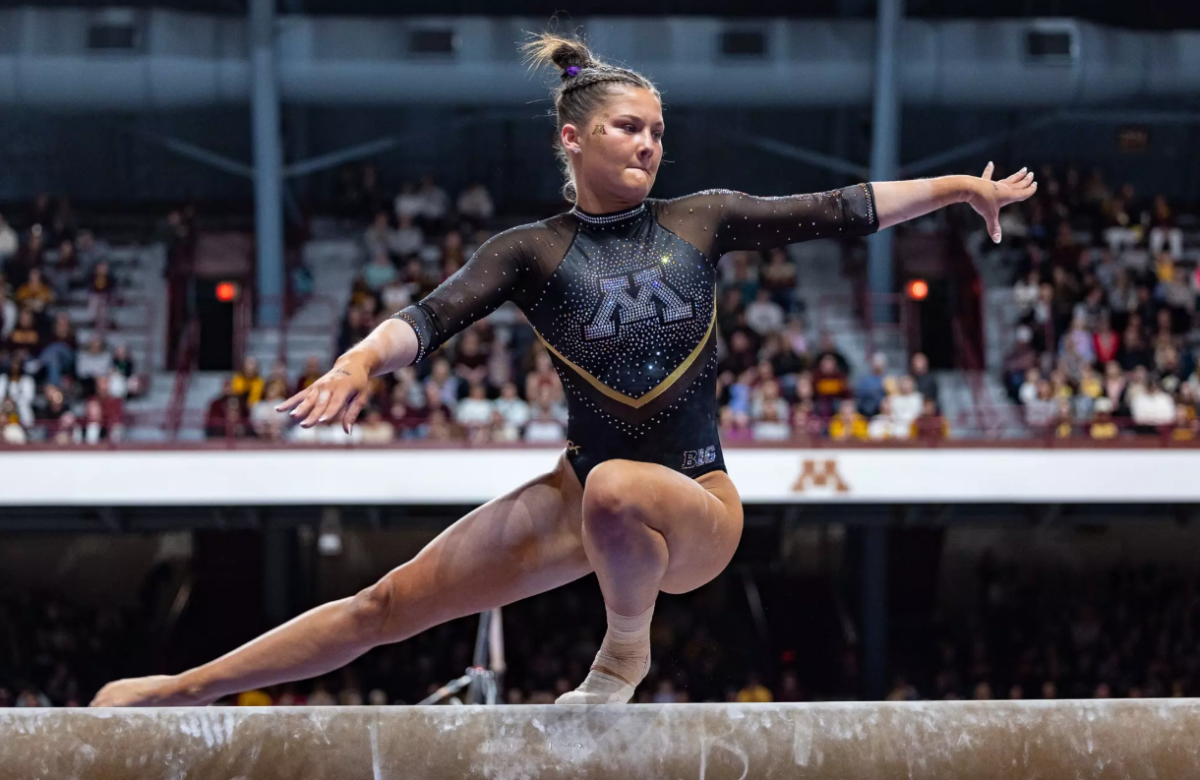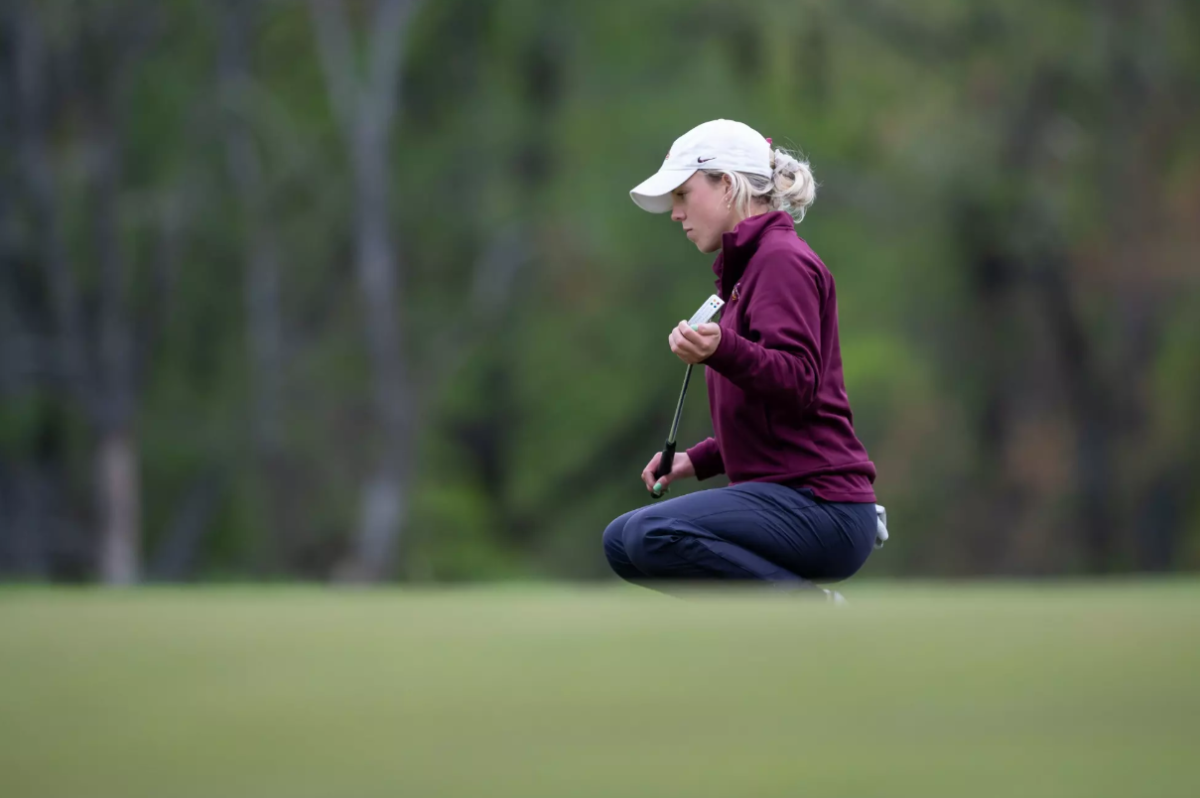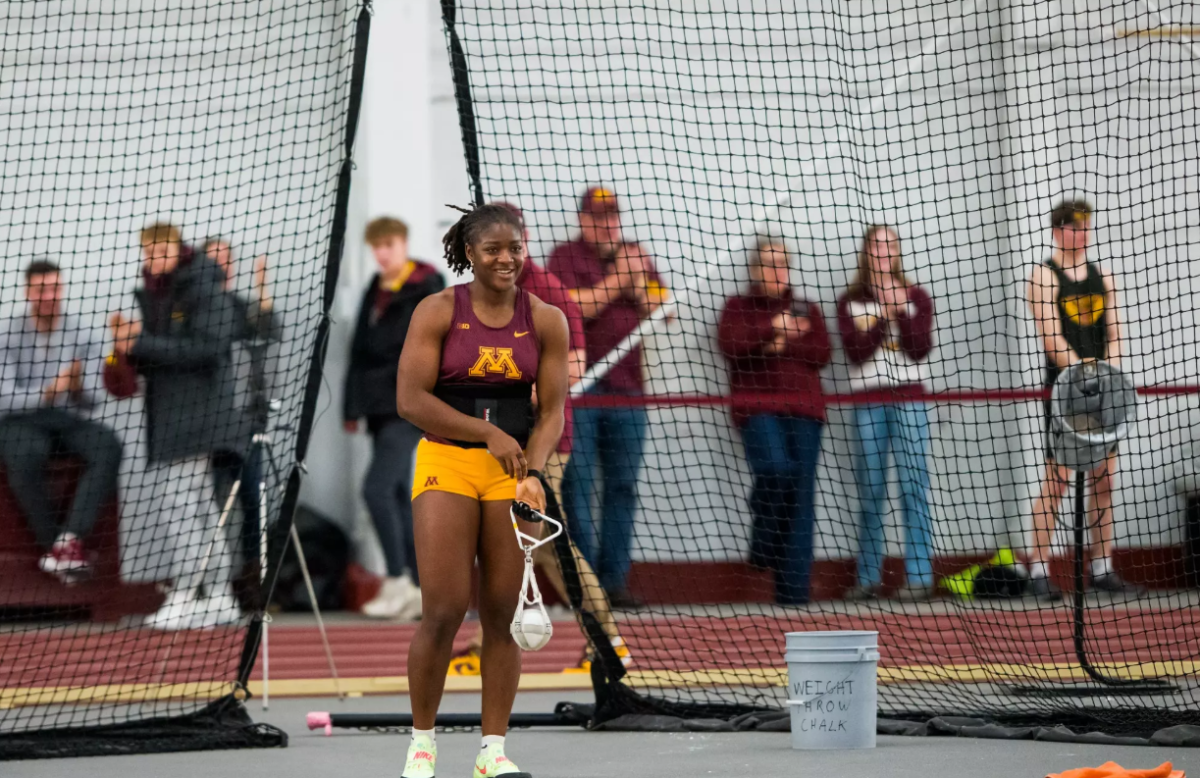The stereotype of a ‘dumb jock’ doesn’t fit well with the student-athletes at the University.
With 188 athletes holding a cumulative grade-point average of over 3.5 through the fall 2007 semester, 29 percent of the student-athlete body holds the criteria needed to graduate with honors.
And with majors ranging from mechanical engineering to microbiology to neuroscience, Minnesota athletes have proven they excel not just on the field but in the classroom as well.
But what may be even more impressive is the high number of highly driven student-athletes now attending the Carlson School of Management, a very prestigious business school.
According to Jan O’Brien, the associate program director at Carlson, around 60 to 70 student-athletes are enrolled in the business school, carrying all prerequisites necessary to meet the school’s goals.
O’Brien said Carlson accepts an average ACT score of 28 for incoming freshman while also looking for strong coursework and leadership outside of the classroom.
Sophomores and juniors can transfer in with a 3.7 cumulative GPA and a strong activity load.
None of these things seem to hinder Minnesota’s Division I athletes however, as Mary Kosir, assistant dean of the Carlson undergraduate program, quickly pointed out.
“One thing that’s surprising about our student-athletes is that often times they are strong academically along with being Division I athletes,” she said. “And many are actually involved in another student organization.”
“Those are the students who, because they manage their time so well, typically do very well,” she said
Time management is an important key for the student-athletes, who many times spend upward of 30 hours per week practicing, preparing or performing in their sport.
But both the Carlson School and the athletics department are a big help in that area according to John Albert, a 2004 All-American and Big Ten champion high jumper for Minnesota. Albert, who graduated from the Carlson School and has moved on into a corporate position with Target, said the University did a great job of instilling good study habits right away.
“One of the things that helped was an academic program run through Beirman (athletic building),” he said. “We had to put in 10 hours a week studying at Beirman, and I think it forced me to bear down that first year.”
Study hours may be helpful with the busy schedules, but conventional wisdom would still say the athletes would have a tougher time than regular students, due to the added pressures of their sports.
Not so, according to sophomore cross country runner Christina Engstrom, who started her collegiate career without an affiliation with a Division I team.
“You’re used to being busy,” she said. “It’s almost harder when you have too much time on your hands because you’ll put things off. But when you’re on a tight schedule, you make better use of your time.”
But with so many majors available that aren’t nearly as competitive as anything in the Carlson school, why are so many athletes putting forth the extra work in business school?
“I think we like to be challenged,” Engstrom said. “We do better when we’re challenged. When it’s easy, I know I don’t apply myself or learn as much, and I’m here to get something out of college so I’ll be ready for the real world.”







